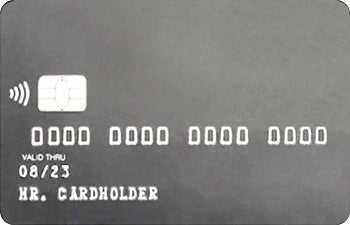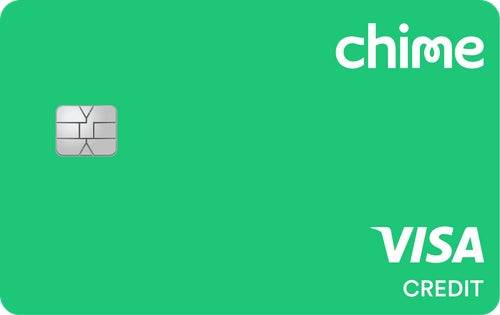- Intro Offer
-
No current offer
- Annual fee
- See terms*
- APR
- See terms*
- Recommended Credit A credit score is used to indicate an applicant’s credit worthiness and may provide guidance about account eligibility. It does not necessarily guarantee approval for any financial product.
-
300 – 669
Poor – Fair
- Rewards rate
-
N/A This card doesn’t offer cash back, miles, or points
When you don’t have a solid credit history, it can be difficult to qualify for a traditional credit card. If you have a limited credit history or are looking to boost your score, the Milestone Mastercard may help.
Designed for those without an extensive credit history, the Milestone Mastercard doesn’t come with many bells or whistles, but it does have lower credit requirements than many other cards. But with a higher-than-average annual fee and purchase APR, this card can quickly become an expensive way to build credit.
Rewards and perks
You can’t earn rewards like cash back or points with the Milestone Mastercard. If you want to earn rewards on your purchases, we recommend considering the Discover it® Secured Credit Card* or the Petal® 2 “Cash Back, No Fees” Visa® Credit Card. Both allow you to earn rewards and are easier to qualify for if you have lower credit than most other rewards cards.
But this isn’t a secured credit card, so you don’t need a down payment to determine your credit limit. This is a nice perk for those who don’t have a lump-sum deposit that secured cards require.
The card reports to the three major credit bureaus, so you may see a credit score boost after a few months of on-time payments. Like most cards, the Milestone offers identity and fraud protection** in case your card is lost or stolen.
Fees
Here are the fees the Milestone Mastercard charges:
- High APR: You could face a purchase APR of 35.90%.
- Annual fee: The annual fee is $175 the first year and $49 thereafter -- much higher than most credit-builder credit cards.
- Low credit limit: This card has a $700 credit limit, which the annual fee is deducted from. That leaves you with a significantly smaller credit line than other credit-building options.
- Over-limit fee: This up to $41 charge happens if you exceed your credit limit but only goes into effect if you enroll in Overlimit Coverage. Otherwise, charges that go over your limit will be declined.
- Foreign transaction fee: The foreign transaction fee is 1%, which is low compared to other credit cards.
- Cash advance fee: 5% or $5 of the transaction, whichever is greater and not to exceed $100 (waived during the first year).
Introductory APR
The Milestone Mastercard doesn’t offer an introductory APR for new purchases or balance transfers. If you’re interested in transferring high-interest credit card debt onto a credit card with a 0% APR introductory period, we recommend checking out one of our top picks for balance transfer credit cards.
Comparable cards
If building credit is your main goal, we also recommend considering these competitor cards.
Discover it® Secured Credit Card
While the Discover it® Secured card requires a minimum $200 security deposit to serve as your credit line, it doesn’t have an annual fee like the Milestone. Unlike the Milestone, however, the Discover it® Secured lets you earn cash back on every purchase. You’ll earn 2% at gas stations and restaurants (for up to $1,000 in combined purchases per quarter) and 1% on everything else. This card also offers a cash-back match on the rewards you’ve earned at the end of your first year -- essentially doubling your cash back.
Discover will also review your account after seven months, which means you could qualify to upgrade to an unsecured card and get your deposit back. But, if you’re worried you may overspend to earn cash back, a credit-builder card without rewards might be better.
Read our full review of the Discover it® Secured Credit Card.
Chime Credit Builder Secured Visa® Credit Card
If you’re worried about not getting approved for a credit card, the Chime Credit Builder Secured Visa is another option that can help you improve your credit without worrying about a credit check. The Chime card has no annual fee -- but you’ll need to create and fund a Chime checking account to get started.
Like most secured cards, your credit limit is equal to your security deposit amount. But Chime lets you use your deposit to pay your bill, if needed, which may offer new credit users more peace of mind.
To apply for Credit Builder, you must have received a single qualifying direct deposit of $200 or more to your Chime Checking Account. The qualifying direct deposit must be from your employer, payroll provider, gig economy payer, or benefits payer by Automated Clearing House (ACH) deposit OR Original Credit Transaction (OCT). Bank ACH transfers, Pay Anyone transfers, verification or trial deposits from financial institutions, peer to peer transfers from services such as PayPal, Cash App, or Venmo, mobile check deposits, cash loads or deposits, one-time direct deposits, such as tax refunds and other similar transactions, and any deposit to which Chime deems to not be a qualifying direct deposit are not qualifying direct deposits.
The secured Chime Credit Builder Visa® Credit Card is issued by The Bancorp Bank, N.A. or Stride Bank, N.A., Members FDIC, pursuant to a license from Visa U.S.A. Inc. and may be used everywhere Visa credit cards are accepted. Please see the back of your card for its issuing bank.
Read our full review of the Chime Credit Builder Secured Visa Credit Card.
How Milestone Mastercard® – $700 Credit Limit compares to other cards
FAQs
There are a few ways to build credit safely. You could apply for a credit-building card or secured card, then start charging purchases you can afford to pay back. Pay your bill in full at the end of each month to avoid interest, and after a few months of responsible use, you should see your credit score start to increase.
If you have no credit or are having difficulty getting approved for a card, you could consider becoming an authorized user on another person’s credit card. As long as the authorized user manages credit responsibly, your score can improve as a result. Just make sure you don’t run up a balance you can’t repay on their account -- doing so can bring both of your credit scores down.
Whenever there’s a hard credit check on your report, your credit score is likely to drop temporarily. Once you start to make on-time payments, your score should go up. Keep hard inquiries to a minimum -- maybe a couple a year -- to protect your credit score.
The length of your credit history also plays a part in your overall score. Closing an older credit card -- especially if it’s your oldest credit account -- can cause your score to drop since your average length of credit history would decrease.
If you still use the card sparingly, we recommend keeping it open. But if the card costs more than it’s worth -- has a high annual fee or benefits you can’t use -- then it may make sense to close your account. Just be prepared for your credit score to drop once the closed account hits your credit report.
*All information about the Discover it Secured Credit Card has been collected independently by CNET and has not been reviewed by the issuer.
**Fraud protection provided by Mastercard Zero Liability Protection. If approved, you’ll receive the Mastercard Guide to Benefits that details the complete terms with you card.
The editorial content on this page is based solely on objective, independent assessments by our writers and is not influenced by advertising or partnerships. It has not been provided or commissioned by any third party. However, we may receive compensation when you click on links to products or services offered by our partners.
The editorial content on this page is based solely on objective, independent assessments by our writers and is not influenced by advertising or partnerships. It has not been provided or commissioned by any third party. However, we may receive compensation when you click on links to products or services offered by our partners.




